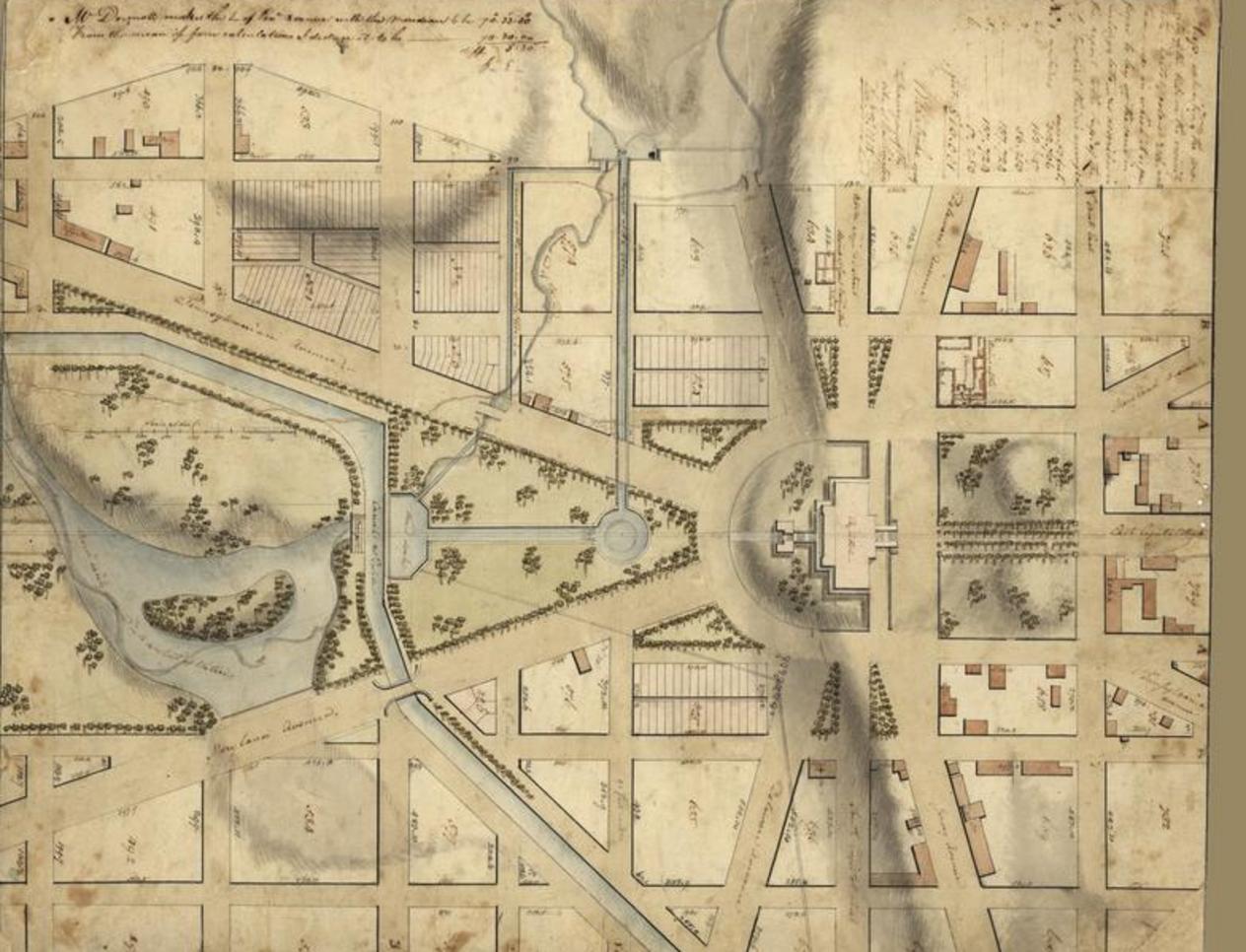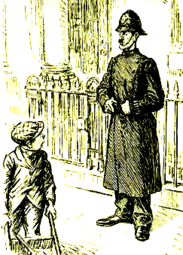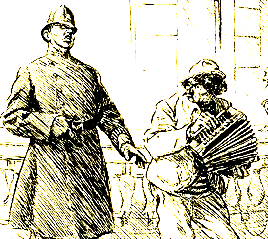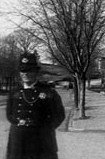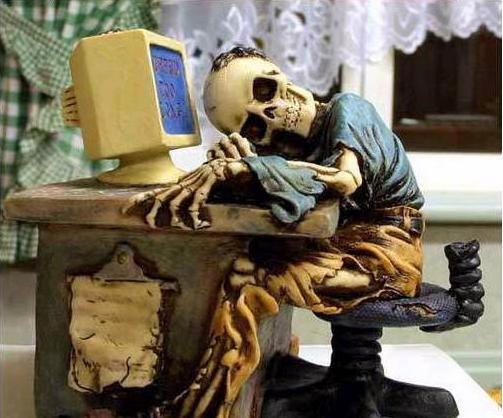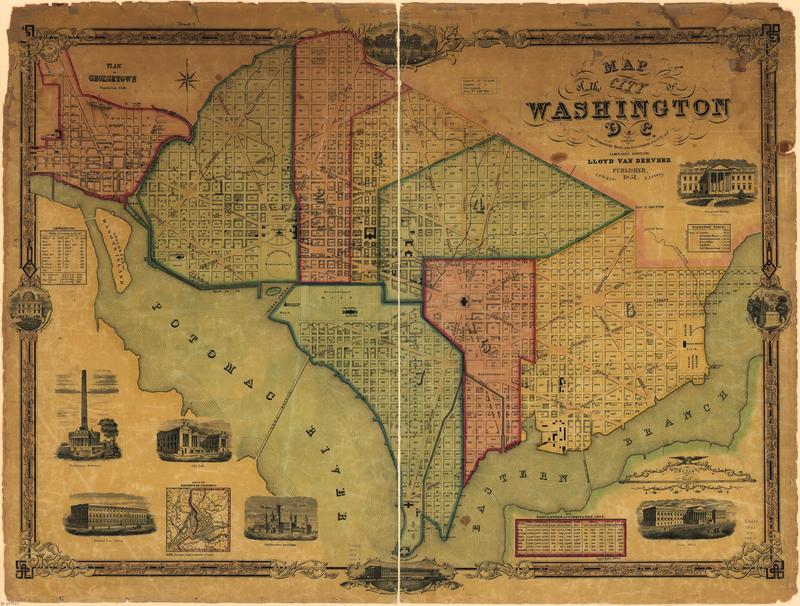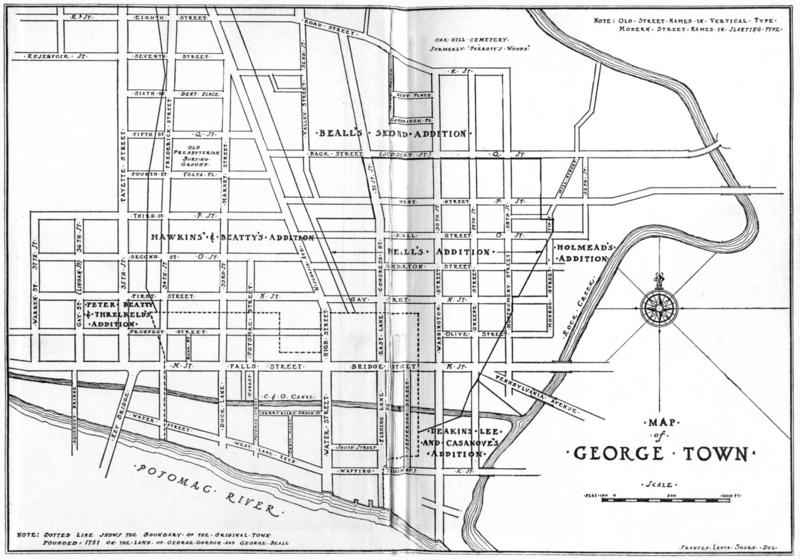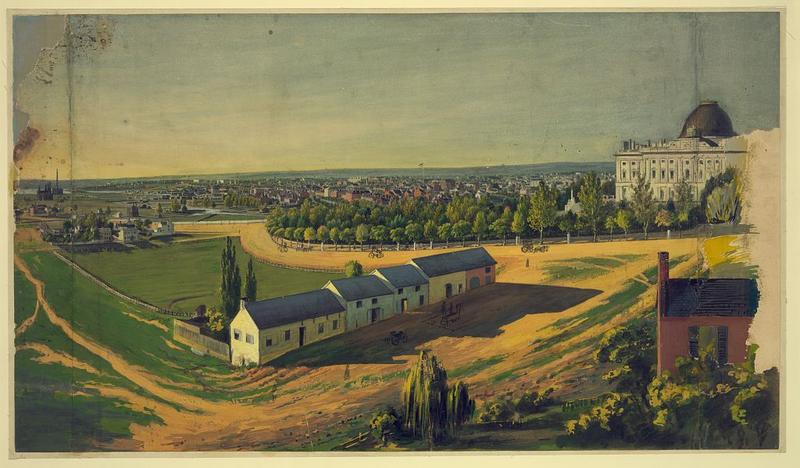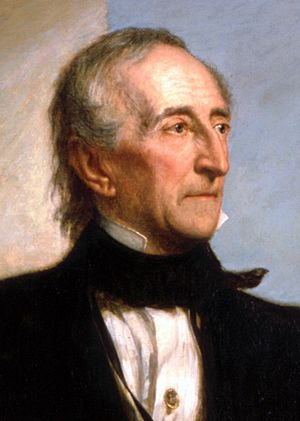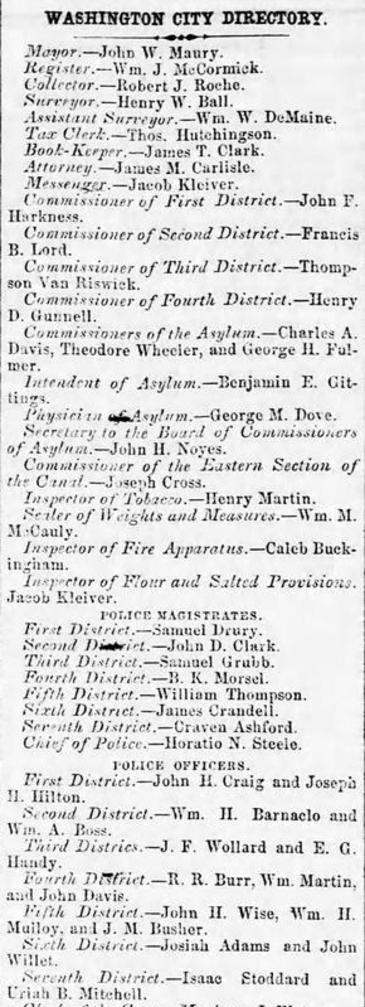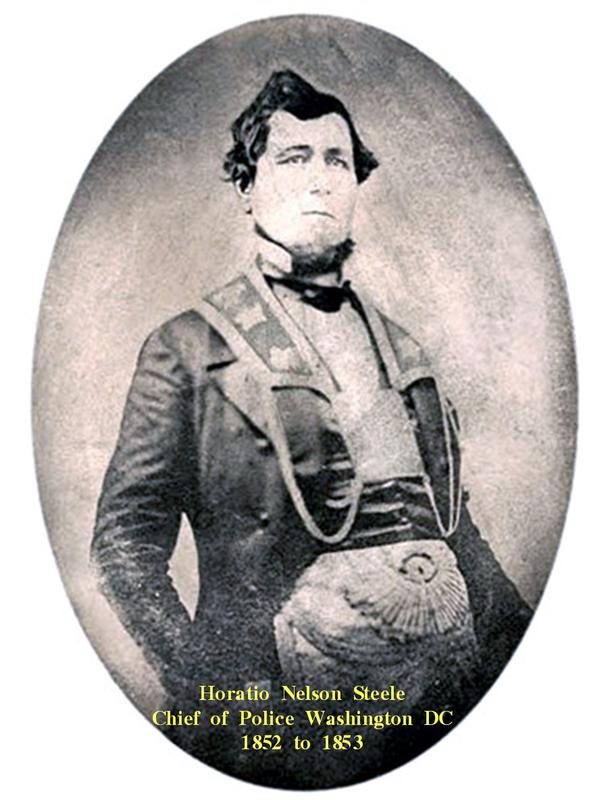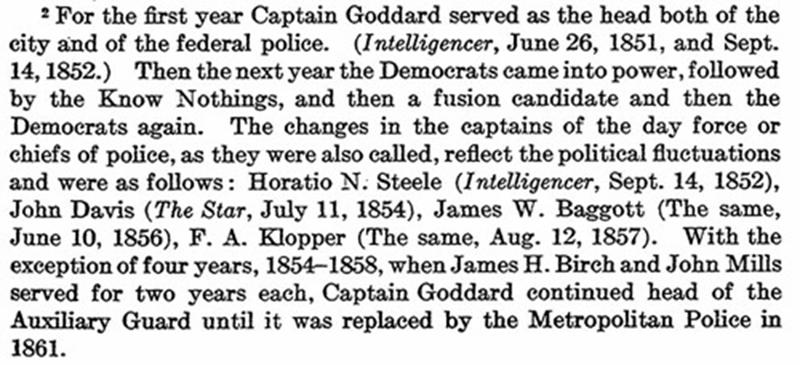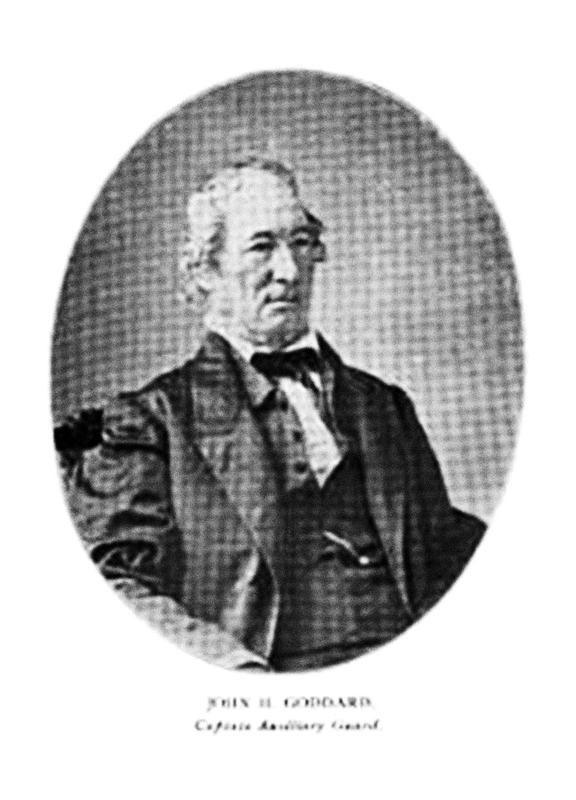BlackSheep Productions was first published in May of 2009
Should there be any material on this site that the DC Metropolitan Police feels is offensive or in anyway
disrespects the MPDC please let me know and it will be removed. All photos and words on this site are of
my own doing. The Washington DC Metropolitan Police are in no way connected to this site. Please
remember, I am not a writer or a web master. Just a cop with a very respectful hobby who is trying to
share information. There will be mistakes on here ....
The Washington D.C. Metropolitan Police Department
1800- 1860
1800 - The new federal district, known as the City of Washington, encompassed a population of 3,210 -- 2,464 whites and 746 blacks. ( what was surprising me was the huge focus on the differences with the black and white community)
1802- May 3rd - Congress passed an act incorporating the City of Washington. This charter provided for the establishment of a city government consisting of an elected twelve-member council of two chambers and a mayor appointed by the President. Among the power of the Corporation was the authority "to establish night watches or night patrols.
1803 - September 20th - established was the position of "Superintendent of Police." He replaced the Constable who had been apointed by the Prince George's County (Maryland) Court to serve as a police officer for the City of Embryo. The duties of the new Superintendent included notifying people to remove "all filth or other offensive substances, or nuisances or obstructions," licensing slaughterhouses and kilns, visiting every part of the city at least once a month, and informing the magistrate of any violations of the law. Pay for the Superintendent was $200 per annum, in addition to money he might pick up as an informer in cases involving fines.
1804 - Although previous historians list CORNELIUS CUNNINGHAM as Washington's first Superintendent of Police, the National Intelligencer reported that Mayor Robert Brent appointed John Willis to that position. Willis confronted little serious crime in his short tenure, but there were early reports that the city " was overrun with petty thieves."
The National Intelligencer then noted that on July 9th, 1804, " The Mayor had appointed Cornelius Cunningham Superintendent of Police in the room of John Willis, resigned. " Thus Willis, the first Police Officer in Washington,became the first of a long list of policemen, including top administrators, to leave their position under a cloud of suspicion.
As a first step, the council empowered the Mayor to appoint FOUR Constables to assist in enforcing the laws of the corporation. " Then , for reasons that were not clear, the council changed the name of the Superintendent of Police to , " the high constable of the city." and authorized the salary of $150 per year.
1805 - Roy Spaulding was appointed High Constable for Washington City early in May of 1805. Four city constables , James B Heard, Jacob Crawford, Clement Venable, and Zephanie Wade were named to assist him.
1814 - Protecting Washington from it's local criminals became a matter of secondary importance when the war of 1812 broke out. By August of 1814 a crisis was at hand. The Militia had gone out to meet the British. There were fears of slave uprising, and that the city, "stripped of troops lay exposed not only to rebellious blacks but to lawless whites ready to loot the city." Mayor James H. Blake requested that every able bodied man exempt from military duty join Committees of Safety in each ward.
Washingtonians made one last attempt to hold off the British as whites and free blacks worked together to throw up barricades at Bladensburg. The British advanced nevertheless and took the city on August 24th, 1814. After burning down many of the government buildings, they left town the next night.
1817 - In June of 1817, Mayor Benjamin G. Orr told the city council that the laws in the city were"not as defective as their execution is remiss and negligent." Lack of a suitable penitentiary or workhouse and inefficient enforcement of the laws created a situation in which "vice, in every odious form, roams the city unrestrained." He recommended doubling the four man police force, but the city council authorized the appointment of only one additional constable.
1820 - A new charter in 1820 reaffirmed the power of the corporation , " to establish night watches or patrols" and to regulate blacks, slaves or free, and other "disorderly" people. The council promptly divided the city into six wards and then fired all five constables by eliminating their jobs. The council replaced them with "six discreet, temperate, and respectable housekeepers, one in each ward, to be called, "City Commissioners." The new police officers were to be paid $250 annually
1821 - The revised police system was not the answer. In Mayor Smallwood's Address to the Council in 1821, he concluded that the city "cannot boast" of " a well-regulated vigorous police." and recommended that the commissioner system of policing be abolished. So the system was changed again. The Mayor was given the power to appoint a police constable to each of the six wards. The police constables assumed the police duties previously exercised by the commissioners, and they reported directly to the Mayor. Pay for the police officers was $100 per year.
1825 - The need for a night watchman and " a proper police" on the capitol grounds was shown by a fire at the Congressional Library room in the Capitol in 1825. This led to the first regular night police in the city, a "force" of two men guarding only the Capitol. Other areas of Washington continued to do without a night force, a situation increasingly untenable as the city expanded.
1830 - The City Council approached the growing vice problem in two ways. First , in 1830 it passed an ordinance declaring that " no...device to be used for the purpose of playing or gambling for money... shall be set up, kept, or exhibited in any part of this city. Secondly, to help enforce this act, the Council later increased the police force from six to ten members.
1835 - Chief Justice Cranch of the Circuit Court of the District of Columbia told the members of the Grand Jury in 1935 that " offenses have been increased beyond the ratio of the population. " He went on to cite intemperance as a major contributing factor to the rise in crime, along with " the great number of strangers drawn to this city...whereby evil disposed persons are enabled to mingle and pass in the crowd without observation.
The city had been unable to develop with minimal police protection because it had been free from a great influx of foreign immigration and had reverted to a country town whenever Congress was not in session. In 1835 the police helped quell a disturbance among laborers on the Washington and Baltimore Railroad. Of much more significance, however, was a race riot in the city a few months later.
1836 - In the aftermath of the destruction, even though blacks had little if any responsibility for causing it, authorities singled them out for more restrictive legislation. On October 26th the City Council passed an ordinance which tightened the controls on granting licenses to blacks and forbade them from to sell spirituous liquors, or keep a refectory, tavern, or eating house of any kind.
Reuben Crandell, whose arrest had sparked the disturbance, was found not guilty on the charge of publishing inflammatory pamphlets.
1837 - In May Newspapers took notice of a crime wave. " If the robberies, burglaries, fires, and outrages which have frequently occured in the city...do not call forth...some prompt and active measures of prevention, it will almost be dangerous to go about our streets, either by day or night." In June the Intelligencer reported what was becoming a persistent pattern of crime in the capital: incendiarism in the eastern part, " highway robbery and attempts to murder" in the center, and burglaries in the western part.
Irregular night patrols continued to function for the next few years. The problem was that as soon as the crime rate dropped the patrols were discontinued. After a period of time, especially when Congress was in session, the criminals would move back in and the cycle would be repeated. It took national attention and Congressional action to obtain a regular, salaried night force.
1842 - In May the House Committee for the District of Columbia issued a report favoring the establishment of a night guard.
Two major objections of the police bill developed in the Congressional debate. At the conclusion of this debate in 1842 Congress passed an act creating an Auxiliary Guard " for the protection of the public and private property in the City of Washington." The new force was specifically charged to protect " against inciendiaries" and to enforce " the police regulations of the city of Washington." The Guard would be supervised by a Captain, to be appointed by the Mayor of Washington. The captain would name a force of fifteen. Salary for the Captain was set at $1,000 per year; five of the regular guard were paid $35 a month, while the remaining ten officers were paid $30 per month. Congress appropriated $7,000 to pay the Guard and to purchase necessary and proper "implements to distinguish them in the discharge of their duties."
The Auxiliary Guard went on duty on September 5th, 1842. Half of the force patrolled from 9:00PM to twelve midnight, when the other half of the patrol until 4:00AM. Newspaper reports disclosed that they did curb the night crime. Gambling houses and "other notorious receptacles of vice and crime" were broken up. Those arrested were disordelies of both races and several black curfew violators. No crime more serious then " petty theft in Centre Market" was reported during this initial fortnight of Guard Duty.
1848 - The free black population of Washington nearly doubled in the 1840's. When seventy-seven slaves boarded a steam boat on the evening of April 15th in an attempt to flee the city, it prompted some whites to take vigilante actions. About thirty armed citizens overtook the slaves at the mouth of the Potomac. They brought the slaves back to Washington and threw them in prison.
1849 - Two brutal night time assaults in February raised serious questions about the recently lauded Auxiliary guard. The City Council reacted by authorizing the Mayor to appoint special policeman and to designate regular policeman to supplement the Auxiliary guard in order " to secure the peace and quiet in the city."
Many of the fourteen city police constables had other jobs and duties. At least eight served as constables for Washington County, a separate jurisdiction. They also took advantage of a fee system which enabled them to supplement their meager salaries of $50 per year. In 1849 Mayor Seaton asked the City Council to reform the fee system. " It appears to me that it would be better for the corporation to create it's own officers, allow them suitable salaries, require their time to be given all together to their police duties, and all fees arising from prosecution to be paid over to the Corporation. many citizens complained that the police constables abused the fee system every day, " not among the rich and influential, but among the ignorant's, the degraded, the poor, the outcast, and the forsaken."
The material you are about read on this page is directed at the history of the police for the City of Washington within the District of Columbia from 1800 up to 1886. The information was taken from the above book written by KENNETH G. ALFERS. This book provides a remarkable amount of information on how the current police agency came to be...
Other books have been written on the history of the Washington D.C. Police but not prior to the Civil War and in such depth. The information below has been extracted from it's original content and placed in a mini version for your viewing. I hope that it was done in a way which does not stray from the intent it was meant to be read .
" LAW AND ORDER IN THE CAPITAL CITY "
__________________________________________________________
Policeman must often walk a fine line between the protection and suppression of the personnel liberties in the performance of their comprehensive set of duties. Police history in the United States, including the police history of the nations capital, unfortunately indicates that to often control has been abused for POLITICAL MOTIVE.
A reaccuring theme in the history of the Washington Police is the marginal character of the personnel. The typical policeman in the nations capital was not prepared for the duties and responsibility of his office. Prior to the 1890's all the potential policeman had to do was fill out an application and pass a physical. ( Military experience was also preferred and sometime made mandatory ) .
Since police work usually involved a twelve to fourteen hour day, seven days a week, and low pay, police were often drawn from the lower strata of society.The overzelous use of police powers was often sanctioned by society at large when it was directed mainly at the poor and black, for they were presumed to make up the criminal element. While a tough and sometimes brutal policeman would probably be allowed to remain on the force, the drunken one was usually fired.
It would be unfair not to mention the exemplary record of the majority of policeman. They faithfully carried out their duties, even though they were not always appreciated or rewarder, ( some things never change ). Nevertheless, in the nineteenth century hundreds of dedicated policeman attended to the needs of thousands of people in the nations capital.
1807 - The council assigned the duties of the High Constable to four city commissioners, one for each ward. the commissioners were also to determine the compensation that each of the remaining four city constables would receive " over and above his legal fees and emoluments . . . for their "vigilance and good conduct."
1808 - By 1808 the police laws for Washington City had begun to deal specifically with blacks. Washington's population was 23% black in 1800, 28% black in 1810. About one seventh of the blacks were free in 1800 while over one third of the black population was free in 1810. These blacks did much of the common labor in the capital, and their daily activities were actively watched by the police. The 1808 city ordinance stipulated that " no black person or person of color, or loose, idle, disorderly person shall be allowed to walk about or assemble at tippling or other houses, after ten o'clock at night." Blacks violating that provision, or apprehended "dancing, tippling, quarrelling, or in playing at any games of hazard or ball, or in making noise, or disturbance." would be fined five dollars for each offense.
If slaves were convicted under this law, their owners were liable. The owner would get all but fifty cents of the fine remitted if he or she gave instructions to have the offending slave whipped. The fifty cents would would go tot he person who inflicted the punishment. Although the law did not say the officer would do the whippingh, that influance would not be unreasonable in light of later practices.
1812 - By 1812 the growing number of free blacks in Washington appaently prompted whites to pressure the city government for further restrictions. On December 16th of that year, the City Council ordered the constables to enforce a stringent new ordinance. Free blacks had to register, giving evidence of of a title of freedom. They were forbidden to engage in "disorderly " assemblies, were required to get apermit before an assembly of any kind, and could not even be present at gambeling events. Historian Wilhelmus Bryan computed that there was ONE drinking establishment for every NINTY inhabitants in Jacksons time as compared to ONE for every FIVE HUNDRED and TWELVE residents in 1912
1808 - 1811, in still another attempt to find an effective and efficient police system, the city government tried "two officers of police." Each was to be responsible for one district in the city, divided bt Fourth Street West. Each was to be paid $100 semi-annually, provided the Mayor and one Branch of the City Council certified that he had "fully and satisfactorily discharged his duty." There is no evidence that the Council refused to pay the policeman under the carrot -and- stick approach. Thus, by 1811, the police duties were back in the hands of the city constables.
1815 - Police officers returned to their normal roles, and citizens again began complaining about their inefficiency.
1800
1802
1803
1804
1805
1807
1808
1808 - 1811
1812
1814
1815
1817
1820
1821
1825
1830
1835
1836
August 5th - This Washington riot was touched off when a young male slave tried to kill his owner. Mrs. William Thorton, widow of the architect who had designed the Capitol. Word quickly spread that the slave had been inflamed by abolitionist literature. Mrs. Thorton meanwhile , " convinced that the slave had been simply drunk, hid him in her home and tried to sell him to safety."
August 6th - The Washington police gave notice that they would rigidly enforces the 1827 act pertaining to free blacks. Before the week was over, federal troops, the militia, and citizen patrols would be used to reinforce the inadequate police.
With tension high, two Washington patrolman arrested a man named Reuben Crandell. They committed Crandell to prison on charges of having circulated incendiary (abolitionist) publications among blacks. A mob gathered, but since Crandell was in jail, they turned their destructive tendencies towards the property of the free blacks.
The first target was the Epicurean House, a restaurant on Pennsylvania Avenue run by Beverly Snow, a free mulatto. Snow had reportedly used "very indecent and disrespectful language concerning the wives and daughters of Mechanics." The mob, including many of the striking laborers, did not find Snow, but they entered his bar and helped themselves.
August 12th - A free mulatto, James Hutton, was apprehended and sent to prison for possessing some abolitionist papers.
The city council responded to the danger by authorizing the Mayor to adopt such measures as he saw necessary. Mayor Bradley issued a proclamation requiring the police to enforce the 10:00 PM curfew regarding blacks and to disperse, "any assemblage... of colored persons."
August 13th - The mob demolished at least one black schoolhouse, and several black tenements, broke windows of a black church, burned a black house of prostitution, and further smashed Snow's restaurant. Although no lives were lost as a direct result of the disturbance, over twenty persons were arrested. Those arrested were presumably whites, since newspaper accounts did not indicate otherwise.
1837
1842
1842 - 47
1842-47 : For the next five years the city was generally peaceful. The city police and the Auxiliary Guard on several occasions cooperated in their efforts to provide protection to the citizens. During the inauguration of President James K. Polk in March of 1845, the usual crowd of pickpockets was dealt with more effectivly by the strengthened police forces. A labor disturbance between Irishman seeking one dollar per day minimum wages and laborers working for less was queled before it reached serious proportions.
In 1846 the City Council divided the city into seven wards and raised the number of police constables to twelve.
1848
1849
1851
1851 - Finally on March 11th, the City Council approved a major police reorganization bill that had been debated for nearly two years. The new ordinance established seven police districts conterminous with the seven wards of the city. The mayor annually appointed , with the advice and consent of the Board of Alderman, two police officers for each district except for the fourth, for which he named three policeman. Outside business interests were explicitly forbidden. Officers were charged to be on duty until the Auxiliary Guard took over, and the Mayor had the authority to require the officers to act as a night watch.
1852
1852 - The Chief's compensation was originally set at $500, apparently because the Chief could also serve as a Police magistrate and receive between $350 and $500 for that job. In 1852 the Chief's salary was doubled.
Congress doubled the Auxiliary guard at approximately the same time the City Council reorganized the day police. The Mayor now had the authority to appoint forty seven police officers for the city: fifteen day police, thirty Auxiliary Guards, a Chief of Police, and Captain of the Guard.
1853
1853 - Full time supervision for both forces was not a cure-all for the inefficiencies of either force. Vandalism, arson, prostitution, robbery, assault, and juvenile delinquency continued to worsen. Complaints alleged that the Auxiliary Guardsman "sit about the corners of streets either asleep or smoking cigars, instead of walking their rounds." James H. Birch had replaced Goddard as Captain of the Guard. New rules stipulated that members of the Guard could be dismissed for engaging in any business besides their police work and / or for " a single instance of intoxication." Other attempts to improve Guard effectiveness included the requirement that members go on duty at 8:30 PM and leave their beats at daybreak. Four of the Guards resigned rather then observe the new regulations; others continued to go about in their inefficient ways.
1854
1854 - In Spring of this year the Know-Nothings in Washington displayed their intense anti Catholicism by seizing a marble stone donated by the Pope for the use of Washington Monument and throwing it in the Potomac. This incident also demonstrated that the Know-Nothings were of sufficient numbers in Washington to have some political clout. In June John Towers, supported by the Know-Nothings, won the mayoralty election. Towers began appointing his Know-Nothing friends to office " with full determination to put out of office naturalized citizens and members of the Roman Catholic Church." Some of the political appointees were named to the city police forces, including the nomination of John Davis to replace Horatio Steele as Chief of Police. Over the next two years it was reported that " Our police as a body is worthless...many of the very men whose duty it is to arrest offenders are discovered to be their associates in crime."
1856
1856 - In 1856, William Magruder defeated Silas Hill, the Know-Nothing candidate. In a message to the Circuit Court he labeled " the police department so inefficient that a citizen has to be murdered in the streets, and the murderer suffered to escape, even after he had been arrested, and other high crimes and misdemeanors have been committed." James Baggott was to replace Steele as Chief of Police and then fired twelve of the police officers who had been appointed by Mayor Towers. Even more sweeping changes were being made in the Auxiliary Guard - the entire force was fired! John Mills, former boot maker, was named to succeed James Birch as Captain of the Guard. For the first six months of 1857 there was relatively little serious crime reported in Washington. However, a few days after the Inauguration for President Buchanan, some police officers on duty at the executive Mansion apparently were neglecting their duty while thieves made off with some goods.
1857
1857 - Although the Know-Nothings had been defeated in the 1856 Mayoralty election they were only warming up for the 1857 city elections. On election day a group of " PLUG UGLIES" from Baltimore descended on the city to help the local " CHUNKERS" and " RIP RAPS " prevent naturalized citizens from voting. Chief Baggott and his men, acting on a tip, went to the train station to keep check on them. They described the PLUGS as "rowdies, with hair closely cut, "mean looking persons," and "suspicious."
While trouble was brewing, the police delivered the ballot boxes to the various precincts. At 9:30 A.M., the PLUGS, CHUNKERS, and RIP RAPS assaulted a line of about one hundred voters, of whom two-thirds of were naturalized citizens, in the first precinct of the Fourth Ward. Police Officer B.T. Ward described what happened: "The rocks flew like hail, mixed with pistol balls.... I expected every minute to fall." After Chief Baggott and others were reported wounded, and the " impudent disturbers of the peace were thus allowed to range up and down without molestation, " Mayor Magruder requested President Bachanan to CALL OUT THE MARINES. About one hundred MARINES marched on the rioters. The plugs and their cohorts now armed themselves with a "six pounder brass swivel" cannon, and prepared to resist the troops at Northern liberty Market. They did not use the cannon but retreated, hurling stones and firing revolver shots at the MARINES. In response the MARINES opened fire. As a result of the exchange, eight people were killed including one " innocent bystander." At least twenty were wounded.
After weeks of disturbances in the Fall of 1857, including fireman's riots, rowdyism and an attempt to stab Captain Mills of the Auxiliary Guard, the city passed a bill authorizing the mayor to appoint twenty-five Special Police officers to serve under the Captain of the Auxiliary Guard. For two dollars per night. the special policeman were to work from sunset to sunrise to preserve the peace in the city.
Preserving peace was an extremely hazardous business during the last two months of 1857. The city was " a perfect hell" according to the news. At least ten policeman were injured in the line of duty. Injuries ranged in severity from that of the Auxiliary Guardsman Benjamin Klopfer who was shot in the left eye, and was in, very critical condition for days, to that of William Lloyd, (A.G.) who was injured by a blow across the face while quelling a riot. The STAR was correct in asserting that " to charge a body of men, who have been thus maimed and bruised in the discharge if their duty, with cowardice and inefficiency, is ungrateful as well as unjust."
1859
1859 - Below the apparently calm surface, however, the Washington police were heading towards further disasters which would embarrass the city once again. Ripples of complaints about inefficient policeman wasting the tax payers money began to appear even in 1859. Other and more serious charges would face the police a year later.
What Mayor Barret had been doing under the guise of " law and order " was to politicize the police department. The first real signs of trouble came in an obscure notice in a city newspaper that members of the municipal police and Auxiliary Guard had decided to organize themselves into a "target company." The purpose of the company was initially very vague, but groups of policeman began practicing military drills and carrying muskets and bayonets around town in a military manner. Not only had the police helped maintain control of the local Democratic party but Republican meetings had been interrupted by stone throwing Rowdies uninterrupted by the police.
1860
1860 - With this background the 1860 city election promised to be controversial -- and it was both the "Intellegencer and the Star" reported a great deal of disorder on election day. The police instead of interfering to prevent outlawry, pandered to its perpetuation by arresting innocent persons who were attacked , and permitted the attacking parties to go "scot free ." Policeman themselves were accused of openly mixing with and supporting those who were interfering with Wallach's supporters.
The Star reported:
Throughout the whole day the police were conspicuous as distributors of Barret tickets, as disburses of money to pay tax's, ect., for Barret votes, and as flagrant aiders and abettors of the ruffians who in the name of the Barret cause were attacking, maiming, and shouting respectable citizens until quite midnight.
That the Federal Metropolis was by the convenience of it's police at the mercy of a murderous mob yesterday afternoon and last night. was so apparent that as that we presume there can be no question Congress will ere the close of the present session, so revise the public regulations as entirely to separate its police from its politics, as had been found necessary in many northern cities.
________________
The Washington police had abused their power to such an extent that the Congress was ready to overhaul the whole system. Certainly none of the administrative plans tried in Washington during the pre-Civil War period had accomplished that end. Moreover, the police had been consistently inadequate through out the first sixty years of Washington's History.
Washington as the Union capital, was a special object of the Northern defense during the Civil War. Extraordinary precautions were taken against the possibility of Southern attacks. Thousands of soldiers poured into the city to defend it or as a stop over on their way to engage the enemy. Along with the troops came thousands of camp followers: speculators, gamblers, whores, and assorted tramps accelerated the flow of Washington's already transient population. In the midst of all this stood the alleged preserver of local law and order, the Washington police.
Serious local crime problems had racked the city during the last six months of 1860. Areas such as , "The Island", with it's " tangle of poverty stricken alley's" competed with " Bloodfield" -- "Hells Bottom"-- "Swampoodle" and " Murder Bay." in the proliferation of crime. Contemporary evidence supports historian Margaret Leech's conclusion that " it was a courageous man who ventured to walk alone by night in the ill-lighted streets of the capital of the United States. The inefficiency of the Washington police was as notorious as the prevalence of it's foot pads and hoodlums. Washington's duel system of police -- (seventy Auxiliary Guard on duty at night (50 of whom were paid for by federal government and 20 by the city) -- and thirty officers and men during the day,-- was to riddled with politics and inefficiency to provide resemblance of adequate police service.
1800-1860
1840 - Total Washington Population - 23, 364
Black Population - 6,521
Free Blacks - 4,808
Slaves - 1,713
1850 - Total Washington Population - 40,001
Black Population - 10, 271
Free Blacks - 8, 158
Slaves - 2,113
1800 Total Black Washington Population - 746
Free Blacks - 123
Slaves - 623
1810 Total Black Washington population - 2,304
Free Blacks - 867
Slaves - 1,437
1858
The first known uniform I have been able to find a record of , is from this book by Kenneth Alfers., it is as follows;
"Another response to the breakdown of peace and order in the capital city was the passage of a new police law in January of 1858. This law created a new police district in the northern part of the city, making ten districts in total, twenty seven police officers or city constables would be distributed in these ten districts. THEIR UNIFORMS WOULD CONSIST OF A BLUE FROCK COAT AND PANTS, WITH WHITE STRIPES ON THE PANTS, AND A CLOTH CAP WITH A BADGE MARKED "CITY POLICE." TWO MONYHS LATER THE POLICEMAN WERE ADVANCED $30 EACH TO PAY FOR THEIR UNIFORM. It is unclear what the badge looked like.
With the start of the Civil War around the corner a lot was about to change in our nations capital city. Brother fighting brother, neighbor fighting neighbor and Washington D.C. was in the heart of it all
1800 to 1860
1815's Washington D.C.
1851's Washington D.C.
Ghosts of DC
The Lost and Untold History of Washington
Here is a painting of Washington from the late 1840s or 1850s, done by Augustus Köllner. The view is from an angle south of the Capitol, looking northwest. We just came across this watercolor while digging through the Library of Congress archives.
Drawing shows stables in the foreground and view of the city of Washington from southeast with the United States Capitol on the right, the White House in center background, and the Smithsonian castle and Washington Monument on the left.
Crime History, Aug. 16, 1841: Riots at White House lead to creation of District of Columbia police force
August 16, 2013 By D.C. Crime Stories Leave a Comment
President John Tyler
On this day, Aug. 16, in 1841, riots broke out on the White House grounds after President John Tyler vetoed a bill to re-establish the Bank of the United States.
Upon learning of the veto, members of his own Whig party flooded from the U.S. Capitol, marched down Pennsylvania Avenue and stormed the Executive Mansion.
Congressional members pelted the president’s home with stones and bricks, fired guns into the air and burned Tyler in effigy. The protest is considered the most violent demonstration ever held near the White House. The Whigs soon after expelled Tyler from their party.
As a result of the unrest, and another incident in which a drunken painter threw a rock at Tyler, Congress and the District of Columbia created its own police force, known as the Auxiliary Guard. Many years later, the force become the Metropolitan Police Department of the District of Columbia
Who was serving in 1853 ?
1854
Evening Star Newspaper, 21 Aug 1854, shows the week's prior arrests by district [precinct]. Those were the days.
Thank you Anne Clayton for providing me with these wonderful articles
The photo and articles below were provided by former MPD Detective Anne Clayton. Anne has been a great help with this site and her researching skills are second to none.
John H. Goddard
Horatio N. Steele
Birth:  1799
1799
Rhode Island, USA
Death:  May 13, 1886
May 13, 1886
District of Columbia
District Of Columbia, USA
John H. Goddard, a native of Rhode Island and former grocer in Washington, District of Columbia, served as the first Chief of Police in Washington, D.C., as head of both the federal and city police. Appointed in 1842, he served as Captain of the Auxiliary Guard and Night Watch until 30 May 1853, when he was relieved. Congress initially authorized the hiring of police constables in 1803, who numbered about 13 in the 1840s. On 14 April 1841, an incident where rocks were thrown at President John Tyler on the White House grounds, guns were fired, and a representation of him was hung in effigy. This event precipitated the hiring of additional police, which required the action of Congress. An act was passed on 23 August 1842, …"to establish an auxiliary watch, for the protection of public and private property in the city of Washington", cited in "District of Columbia Police: A Retrospect of the Police Organizations of the Cities of Washington and Georgetown and the District of Columbia, with Biographical Sketches ... and Historic Cases. Pub. for the Benefit of the Policemen's Fund (Google eBook), compiled by Richard Sylvester, and originally published by Gibson Brothers, Printers and Bookbinders, Washington, D.C., 1894. As a result, Goddard was appointed the first Chief of Police in Washington, D.C., and his photo was published in the 1894 immediately preceding referenced publication.
The following is his death notice from The Critic (Washington, District of Columbia), 15 May 1886. Page 4.: "Funeral of Captain Goddard. The funeral of the late Captain John Goddard took place at 10 o'clock this morning from the Church of the Immaculate Conception. Before going to the church there was a short service at the late residence of the deceased, on the corner of M and 11th streets. The coffin was covered with beautiful flowers worked into appropriate designs. Dr. Ryan, the assistant pastor, conducted the impressive services at the church. The body was taken to Mt. Olivet Cemetery, and deposited in a vault. The following were the pall-bearers: Messrs Robert Downing, William O'Donnell, John Saul, Samuel Norment, Benjamin Charlton and John M. Simms."
Anne H. Clayton, 11 Jul 2014.
Burial:
Mount Olivet Cemetery
Washington
District of Columbia
District Of Columbia, USA
National Republican newspaper, Washington, D.C. 4 Dec 1860
